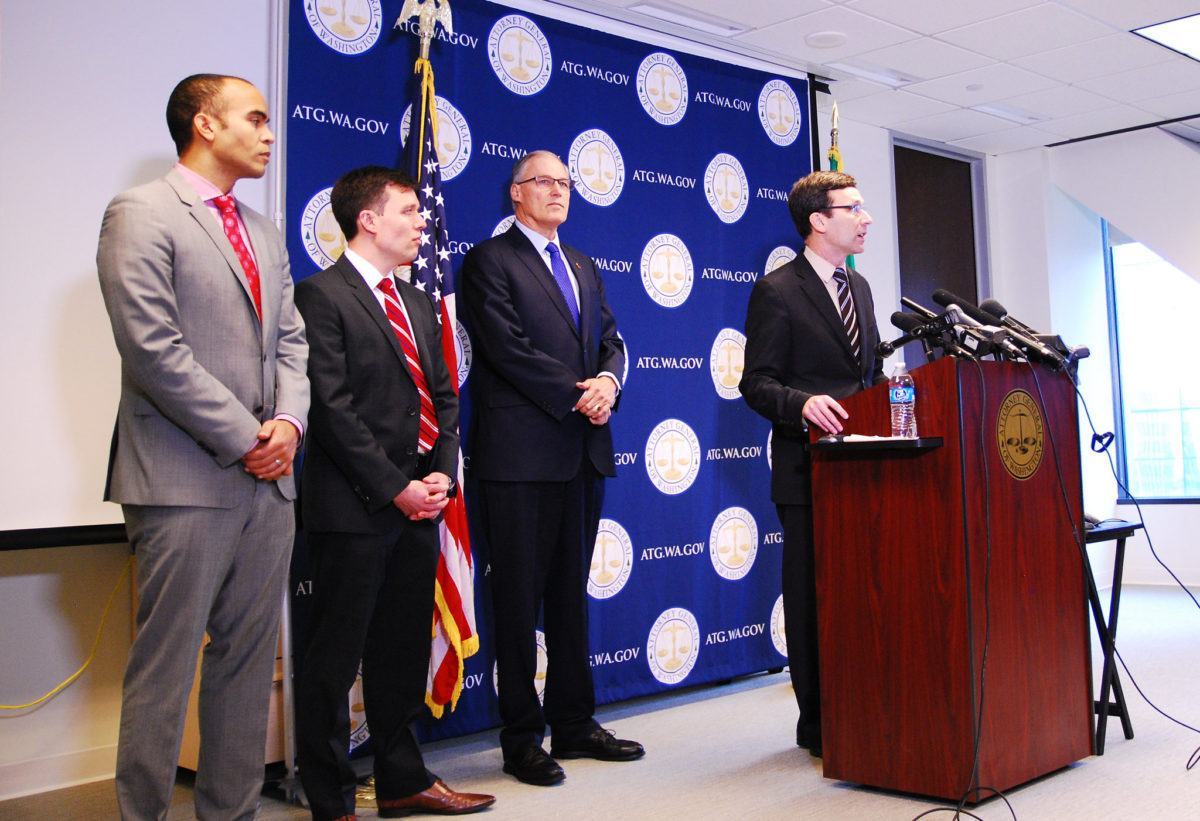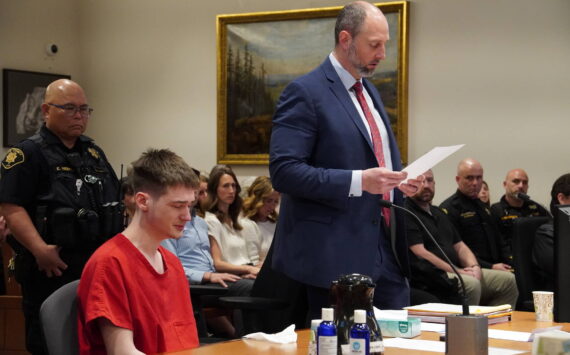A federal judge in Seattle today put President Donald Trump’s executive order banning immigrants from seven majority-Muslim nations on ice.
Judge James L. Robart issued a temporary restraining order on the case pending further review of a lawsuit brought by state Attorney General Bob Ferguson that argued the executive order broke constitutional guarantees of equal protection under the law. The judge’s ruling applies nationwide.
“The Constitution prevailed today,” Ferguson said in a press release. “No one is above the law — not even the President.”
Lots of people have suggested that Ferguson was just grandstanding with the lawsuit, but the judge’s order suggests he thinks it has merit.
Here’s the full release:
***
A federal judge in Seattle today granted Attorney General Bob Ferguson’s request to immediately halt implementation of President Donald Trump’s Executive Order on immigration nationwide.
The Temporary Restraining Order will remain in place until U.S. District Court Senior Judge James L. Robart considers the Attorney General’s lawsuit challenging key provisions of the President’s order as illegal and unconstitutional. If Ferguson prevails, the Executive Order would be permanently invalidated nationwide.
To obtain the Temporary Restraining Order, the state needed to prove that its underlying lawsuit was likely to succeed, that irreparable harm was likely to occur without the restraining order, and that halting the President’s order immediately is in the public interest. The state also needed to establish that the potential injury to Washington residents caused by leaving the President’s order in place outweighs any potential damage from halting it.
Judge Robart, who was nominated to the court by President George W. Bush in 2003, ruled that Ferguson had met the high standards necessary to block the Executive Order until the court reaches the merits of the lawsuit.
“The Constitution prevailed today,” Ferguson said. “No one is above the law — not even the President.”
Washington became the first state to challenge the President’s order on Monday. Ferguson argues that the Executive Order violates the U.S. Constitution’s guarantee of Equal Protection and the First Amendment’s Establishment Clause, infringes individuals’ constitutional right to Due Process and contravenes the federal Immigration and Nationality Act.
Major Washington state institutions supported the Attorney General’s lawsuit through declarations filed alongside the complaint. In their declarations, for example, Amazon and Expedia set forth the detrimental ways the Executive Order impacts their operations and their employees.
Minnesota, led by Attorney General Lori Swanson, joined Ferguson’s amended complaint filed Thursday. In addition, since Washington brought its action, Massachusetts, New York and Virginia intervened in similar lawsuits challenging the Executive Order in their respective jurisdictions.
Solicitor General Noah Purcell, Deputy Solicitor General Anne Egeler and Solicitor General’s Office Fellow Kelly Paradis, as well as members of the Wing Luke Civil Rights Unit, including Unit Chief Colleen Melody and Assistant Attorneys General Patricio Marquez and Marsha Chien, are handling the case.
***








